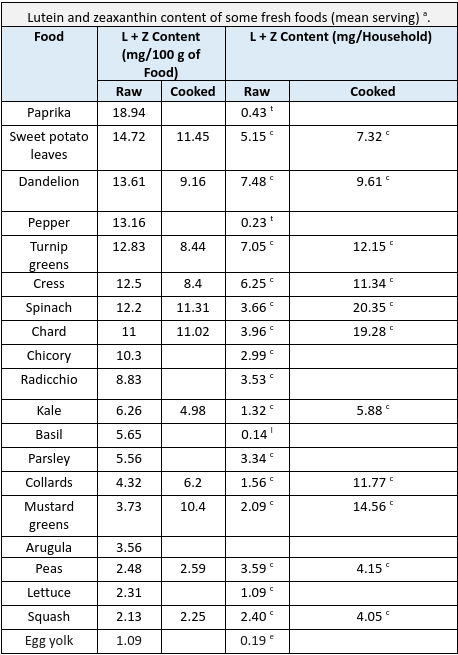Introduction
Eye health is essential for maintaining quality of life, but it is not just about vision correction or UV protection. While we often focus on these aspects, we tend to overlook a key nutrient: lutein. This powerful antioxidant plays a crucial role in shielding the eyes from harmful light and oxidative damage, concentrated in the retina and lens, lutein is vital in preventing conditions like age-related macular degeneration, cataracts, and retinitis pigmentosa. Curious about whether your diet is meeting your lutein needs? Read on to discover why this nutrient is so important and how to ensure you are getting enough for optimal eye health.
What is Lutein?
Lutein is a xanthophyll, an oxygenated carotenoid that humans must obtain through diet since we cannot synthesize it. As part of the carotenoid family, lutein is known for its eye health benefits, including:
- Filters blue light to protect retinal cells and provide antioxidant defence against oxidative stress.
- Lutein and zeaxanthin may help prevent or slow macular degeneration.
- Crucial for retinal health by absorbing blue light and acting as a natural eye sunblock.
- Enhances contrast sensitivity and reduces glare for improved visual clarity.
Recommended Lutein Intake
Although there is no official recommended daily allowance (RDA) for lutein, experts typically recommend a daily intake of 6–10 milligrams for optimal eye health. Research by Seddon et al. suggests that consuming at least 6 mg per day can help protect against age-related macular degeneration (AMD). Studies also show that individuals with higher lutein intake are less likely to experience vision problems, particularly as they age.
Sources of Lutein in Your Diet
The good news is that lutein is found in a wide variety of foods, especially dark, leafy greens. Here are some of the best dietary sources of lutein:

Lutein is fat-soluble, which means it is best absorbed when consumed with healthy fats like olive oil, avocados, or nuts.
Are You Getting Enough?
Lutein is naturally abundant in fruits, cereals, vegetables, and egg yolks, with its bioavailability highest in egg yolks compared to other foods. Lutein intake varies depending on dietary habits, ranging from 0.67 mg/d to over 20 mg/d. In Western-style diets, the average daily intake is about 1.7 mg, while in Mediterranean countries rich in fruits and vegetables, it ranges from 1.07 to 2.9 mg, with significant variation between countries. In Korea, the average intake is approximately 3 mg/d. Interestingly, Pacific countries, where fruit and vegetable consumption are particularly high, report the highest lutein intake, reaching up to 25 mg/d in the Fiji Islands.
Assessing whether you are consuming enough lutein can be tricky because it’s not always listed on food labels. It is important to note that most Americans do not consume quantities of lutein and zeaxanthin sufficient to produce increases in MPOD (Macular Pigment Optical Density)
If you are unsure or worried about potential deficiencies, consider consulting with a nutritionist or eye care professional. For individuals with specific concerns about their vision or health conditions like AMD, lutein supplementation may be a worthwhile consideration.
Supplements vs. Whole Foods
Lutein supplements can be a convenient way to meet the recommended daily intake, especially for those who struggle to get enough from their diet. Since lutein is present in relatively low amounts in most foods—particularly for people who don’t regularly consume lutein-rich foods like leafy green vegetables.
Supplements can help fill the gap.
However, it is generally best to get lutein from whole foods, as they offer a broader range of essential nutrients, fiber, and antioxidants that supplements can’t replicate. If you find it difficult to include enough lutein-rich foods in your diet, supplements can be a helpful option—but it’s important to consult with a healthcare provider before starting.
Conclusion
lutein is important to optimize ocular and cognitive health across the lifespan due to its role as an antioxidant and anti-inflammatory agent. By incorporating more lutein-rich foods into your diet—especially those dark, leafy greens—you can help safeguard your eyes against the harmful effect of blue light from age-related issues and improve overall visual performance. If you’re unsure whether you’re getting enough, consider adding a Lutein supplement to your diet today.
Your eyes will thank you!
Reference –
- Nutrients. 2018 Sep 18;10(9):1321. doi: 10.3390/nu10091321
- Curr Dev Nutr. 2019 Jun 4;3(7): nzz066. doi: 10.1093/cdn/nzz066

